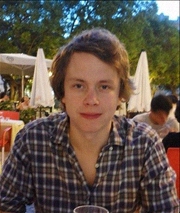Tutor HuntResources Philosophy Resources
Is The Wave-function The Fundamental Ontology Of Quantum Mechanics?
Philosophy of Physics essay
Date : 29/06/2015
Author Information

Uploaded by : Daniel
Uploaded on : 29/06/2015
Subject : Philosophy
§1 One Problem and 3 Solutions Although Quantum Mechanics (QM) is one of our best physical theories, the orthodox (Copenhagen) interpretation (OQM) is beset with a major conceptual problem, that of measurement. This section will address what this 'Measurement Problem' is and the interpretative solutions that have been produced to address this issue.
§2 The Measurement Problem (MP)
The formalism of QM describes the evolution of the wave-function, a mathematical object that describes the physical state of a quantum system (Cushing 1998 p.290). How this wave-function evolves over time is determined by the Schrödinger equation. A particle with properties which have not yet been measured can be represented by a superposition of the possible states. This means that the particles are not in one or the other state, but neither does it mean they are in both (Albert 1992 p.11). Say an experimenter is to measure spin in the x direction of a particle. Before measurement the particle is represented in the formalism as:
|?> =|?x> + |?x> The particle is neither up in the x direction, down in the x direction, and neither is it in both. A measurement is the correlation of two systems where one system tells us something about the other system. In this way, the micro-state of the particle is correlated with the macro-state of a measurement device to detect the property under investigation. Due to the linearity of the dynamics of the wave-function (the Schrodinger equation) the superposition of the particle's spin in the x direction, upon measurement, will end up in an entangled superposition of the particle and the measurement device. This is represented as:
|?> =|?x>|?M> + |?x>|?M>
Thus, the measurement device is now in a superposition of detecting not one or the other property, and also not both. This conflicts with our (reasonably founded) conception of a definite world that does not contain superpositions or indefinite states of measurement devices, or anything else for that matter .
To resolve this issue, the OQM introduces a non-linear collapse upon measurement. The wave-function's dynamics collapse into one definite state or another. But at what time does the wave-function collapse? Do we have to refer to the intentions of the observer to get a collapse (Saunders 2010 p.3)? These conceptual issues are only a small example (see Albert 1992 pp.73-80) of those facing this non-linear collapse and I do not have the space to go into them in-depth. It suffices to say that the measurement problem presented an issue during the founding of QM and was not satisfactorily resolved within OQM. Solutions to the MP are to what I now turn.
§2.1 Solutions to the Measurement Problem
To give a definite value upon measurement one of the terms of the wave-function must be 'picked out'. The other terms must become irrelevant to the measurement. How the formalism is to be interpreted will allow us to do so. Retaining the quantum state requires either: C1) Changing the quantum states dynamics (collapsing the irrelevant term of the superposition); C2) Keeping the dynamics as they are (the terms are de-cohered from one another to give branching, dynamically stable worlds) C3) Supplementing the quantum state with hidden variables (such variables giving irrelevance to terms); (Saunders 2010 p.4) . Following these criteria I will later discuss three prominent interpretations and their respective ontologies.
Introduction
In the remainder of this essay I argue that the concept of emergence can be used to defend the status of the wave-function as the fundamental ontology of quantum mechanics (QM). I do so through a discussion of solutions to the measurement problem (MP) and their respective ontologies; in particular, the place of the wave-function in each. I outline the MP, the solutions and their basic ontologies in §2.2. A more in-depth discussion of the status of the wave-function in each (§3) leads to arguing for the ontological status of the wave-function in §3.5, utilising an argument put forward by North (2013). I argue that if the fundamental ontology of a theory is implied by the dynamical laws of that theory, then the wave-function can be considered the fundamental ontology of any solution to the MP. In §4 I discuss a common critique of regarding the wave-function as fundamental. That of resolving three-dimensional (3D) macroscopic reality from a fundamentally high-dimensional (HD) reality. Through the concept of the 3D reality being emergent from the HD ground (Wallace 2012a), I conclude that this critique is unfounded (§4.3). Moreover, conceptualising this link should not pose an immediate problem, given the complexity of modern physical science, and our limited intuitions and assumptions about the world.
Bibliography Albert, D.Z. (1992) Quantum Mechanics and Experience (Harvard: Harvard University Press) Bell, J.S. (1987) Speakable and Unspeakable in Quantum Mechanics (Cambridge: Cambridge University Press) Cushing, J.T. (1998) Philosophical Concepts in Physics: The Historical Relation Between Philosophy and Scientific Theories (Cambridge: Cambridge University Press) North, J. (2013) The Structure of a Quantum World. In A. Ney and D. Albert (eds.) The Wave Function: Essays on the Metaphysics of Quantum Mechanics (New York: Oxford University Press) 184-202 Schrodinger. E. (1935) The Present Situation in Quantum Mechanics, Proceedings of the American Philosophical Society 124: 323-338 Saunders, S. (2010) Many Worlds? An Introduction. In S. Saunders, J. Barrett, A. Kent and D. Wallace (eds.) Many Worlds? Everett, Quantum Theory, & Reality (Oxford: Oxford University Press) 1-49 Wallace, D. (2012a) The Emergent Multiverse (Oxford: Oxford University Press)
This resource was uploaded by: Daniel
